For this reason, I remind you to stir into flame
the gift of God that you have through the imposition of my hands.
For God did not give us a spirit of cowardice
but rather of power and love and self-control.
(First Reading from the Memorial of Saints Timothy and Titus)
On Cowardice
Since Christmas, I confess, I have been feeling a bit burned out. Two years of countering the lies during this pandemic have taken their toll as this is a battle, ultimately, between principalities and powers. (Today, Facebook just suspended me again for 30 days because I posted a life-saving, peer-reviewed treatment on their platform last year. We are battling censorship of the truth at every turn, a true fight between good and evil.) Moreover, the silence of the clergy — what may very well be the “cowardice” St. Paul speaks of — has been deeply saddening and, for many, a crushing betrayal.[1]cf. Dear Shepherds… Where Are You?; When I was Hungry As I wrote at the beginning of the pandemic, this is Our Gethsemane. And hence, we are living through the sleepiness of so many,[2]cf. He Calls While We Slumber their cowardice, and ultimately, their abandonment of common sense, logic, and truth — just as Jesus, who is the Truth, was completely abandoned as well. And just as He was calumniated, so too, those speaking the truth are being demonized with false labels: “racist, misogynist, white supremacist, conspiracy theorist, anti-vaxxers, etc.” It’s rather silly and juvenile — but there are those gullible enough to believe it. Hence, there are also the daily tensions of having to confront those in our family or communities who are being led now by a spirit of fear and who act out accordingly. It is a spectacular real-time education for many of us to see just exactly how societies, such as Germany or elsewhere, came to accept dictatorship and genocide, and even side with it.[3]cf. Mass Psychosis and Totalitarianism Of course, we never believe that it could happen to us — until we’re looking back decades later saying, “Yup, it happened — just like we were warned. But we didn’t listen. We didn’t want to listen.” Perhaps Benedict XVI said it best when still a cardinal:
It is evident today that all the great civilizations are suffering in varying ways from the crises of values and ideas which in some parts of the world assume dangerous forms… In many places, we are on the brink of ungovernability. — “The future pope speaks”; catholiculture.com, May 1st, 2005
And so, we can easily become discouraged. But St. Paul stands over us today like a big brother saying, “Wait a minute: you have not been given a spirit of fear and timidity. You are a Christian! So stir this divine gift into flame! It is your rightful possession!” In fact, said Pope St. Paul VI:
…so great are the needs and the perils of the present age, so vast the horizon of mankind drawn towards world coexistence and powerless to achieve it, that there is no salvation for it except in a new outpouring of the gift of God. Let Him then come, the Creating Spirit, to renew the face of the earth! —POPE PAUL VI, Gaudete in Domino, May 9th, 1975, www.vatican.va
And so, this Mass reading could not be more timely a reminder that we ought to be praying daily for a new Pentecost in the Church and the world. And if we are sad, depressed, discouraged, anxious, deflated, exhausted… then there is hope that the ashes within can be stirred again into flame. As is written in Isaiah:
They that hope in the LORD will renew their strength, they will soar on eagles’ wings; they will run and not grow weary, walk and not grow faint. (Isaiah 40:31)
This is not a self-help programme, however, a kind of motivational cheer-leading session. Rather, it is a matter of reconnecting with God who is the Source of this power, love, and self-control.
Power
While the seventy-two disciples went out with the authority of Jesus to cast out demons and announce the Kingdom, it wasn’t until they were “filled with the Holy Spirit”[4]Acts 2:4 at Pentecost that hearts were moved en masse to conversion — three thousand in one day.[5]Acts 3:41 Without the power of the Holy Spirit, their apostolic activity was limited if not sterile.
…the Holy Spirit is the principal agent of evangelization: it is He who impels each individual to proclaim the Gospel, and it is He who in the depths of consciences causes the word of salvation to be accepted and understood. —POPE PAUL VI, Evangelii Nuntiandi, n. 74; www.vatican.va
Hence, wrote Pope Leo XXII:
…we ought to pray to and invoke the Holy Spirit, for each one of us greatly needs His protection and His help. The more a man is deficient in wisdom, weak in strength, borne down with trouble, prone to sin, so ought he the more to fly to Him who is the never-ceasing fount of light, strength, consolation, and holiness. —Divinum Illud Munus, Encyclical on the Holy Spirit, n. 11
It is the power of the Holy Spirit that is the difference. In fact, the papal household preacher says we baptized can “tie” up the grace of the Holy Spirit in our lives and keep the Spirit from acting.
Catholic theology recognizes the concept of a valid but “tied” sacrament. A sacrament is called tied if the fruit that should accompany it remains bound because of certain blocks that prevent its effectiveness. —Fr. Raneiro Cantalamessa, OFMCap, Baptism in the Spirit
Hence, we need to pray for this “untying” of the Holy Spirit, he says, in order for His graces to flow like a fragrance in the Christian life, or as St. Paul says, “stir into flame.” And we need to convert in order to remove the blocks. Hence, the sacraments of Baptism and Confirmation are only the beginning of the Holy Spirit’s action in the disciple, followed by the help of Confession and the Eucharist.
Moreover, we see in Scripture how to be “filled with the Holy Spirit” over and over again:
• through communal prayer: “As they prayed, the place where they were gathered shook, and they were all filled with the Holy Spirit….” (Acts 4:31; note, this is many days after Pentecost)
• through the “laying on of hands”: “Simon saw that the Spirit was conferred by the laying on of the apostles’ hands…” (Acts 8:18)
• through listening to the Word of God: “While Peter was still speaking these things, the Holy Spirit fell upon all who were listening to the word.” (Acts 10:44)
• through worship: “…be filled with the Spirit, addressing one another in psalms and hymns and spiritual songs, singing and making melody to the Lord with all your heart.” (Eph 5:18-19)
I have experienced this “infilling” of the Holy Spirit numerous times in my life through the above. I cannot explain how God does it; I just know that He does. Sometimes, says Fr. Cantalamessa, “It is as if the plug is pulled and the light is switched on.” That is the power of prayer, the power of faith, of coming to Jesus and opening our hearts to Him, especially when we are tired. In this way, filled with the Spirit, there is power in what we do and say, as if the Holy Spirit is writing “in between the lines.”
Often, so often, we find among our faithful, simple old women who perhaps didn’t even finish elementary school, but who can speak to us of things better than any theologian, because they have the Spirit of Christ. —POPE FRANCIS, Homily, Sept. 2nd, Vatican; Zenit.org
On the other hand, if we do nothing but fill our spiritual emptiness with social media, television, and pleasure, we will remain empty — and the Holy Spirit will be “tied” by our human will.
…do not get drunk on wine, in which lies debauchery, but be filled with the Spirit. (Eph 5:18)
Love
Sitting in his cell awaiting trial in front of a Nazi court, Fr. Alfred Delp, S.J. penned some powerful insights on the trajectory of humanity that are more relevant than ever. He notes that the Church has become all too much a vessel of maintaining the status quo, or worse, its accomplice:
At some future date the honest historian will have some bitter things to say about the contribution of the Churches to the creation of the mass mind, of collectivism, dictatorships and so on. —Fr. Alfred Delp, SJ, Prison Writings (Orbis Books), p. 95; Fr. Delp was executed for resisting the Nazi regime
He goes on to say:
Those who teach religion and preach the truths of faith to an unbelieving world are perhaps more concerned with proving themselves right than with really discovering and satisfying the spiritual hunger of those to whom they speak. Again, we are too ready to assume that we know, better than the unbeliever, what ails him. We take it for granted that the only answer he needs is contained in formulas, so familiar to us, that we utter them without thinking. We do not realize that he is listening, not for the words, but for evidence of thought and love behind the words. Yet, if he is not instantly converted by our sermons, we console ourselves with the thought that this is due to his fundamental perversity. —from Alfred Delp, SJ, Prison Writings, (Orbis Books), p. xxx (emphasis mine)
God is love. How can we fail to see the significance, then, of loving one another — especially our enemies? Love is what puts flesh on God — and we are now the hands and feet of Christ. At least, we are supposed to be. It is through the “evidence of thought and love” in what we choose to do and say that the world will be convinced by us — by more than a thousand eloquent words devoid of love, devoid of the Holy Spirit. Of course, there are many who do many acts of kindness, etc. But the Christian is more than a social worker: we are present in the world in order to bring others into an encounter with Jesus. Hence,
The world calls for and expects from us simplicity of life, the spirit of prayer, charity towards all, especially towards the lowly and the poor, obedience and humility, detachment and self-sacrifice. Without this mark of holiness, our word will have difficulty in touching the heart of modern man. It risks being vain and sterile. —POPE ST. PAUL VI, Evangelii Nuntiandi, n. 76; vatican.va
There’s a million books written on Christian love. Suffice it to say, then, that what remains is for Christians to actually do it, to be what love looks like.
Self-Control
While the world may empty us of our human energies and attempt to whittle away at our resolve, and even hope, there is a certain “emptying” that is necessary. And that is the emptying of our self-will, the ego, the Great “I”. This emptying or kenosis is essential in the Christian life. Unlike Buddhism, where one is emptied but never filled, the Christian is emptied of self in order to be filled with the Holy Spirit, indeed, the Holy Trinity. This “dying to self” comes through the Holy Spirit’s aid by leading us into the “truth that sets us free”: [6]cf. John 8:32; Rom 8:26
For those who live according to the flesh set their minds on the things of the flesh, but those who live according to the Spirit set their minds on the things of the Spirit. To set the mind on the flesh is death, but to set the mind on the Spirit is life and peace…. if you live according to the flesh you will die, but if by the Spirit you put to death the deeds of the body you will live. (cf. Rom 8:5-13)
For this reason, says St. Paul, “do not be conformed to this world but be transformed by the renewal of your mind.”[7]Rom 12:2 We have to make deliberate choices to follow Jesus, to “repent” of our sins and leave behind the “flesh” or the “old man“, as Paul puts it. Regular confession, monthly if not weekly, is indispensable for the serious Christian. And yes, sometimes this repentance hurts because we are literally putting to death the desires of the flesh. The Spirit which we have been given is not a spirit of doing as we please, but of living on our knees — living in submission to the Will of God. This may sound like a baptized form of slavery, but it’s not. The Divine Will is the glorious architectural plan of the human soul. It is the very Wisdom of God that enables man to commune with Him through the intellect, will, and memory. In self-control, we do not lose but find ourselves. The Christian tradition is packed with millions of testimonies and martyrs of those who, in denying the sinful flesh, discovered the paradox of the Cross: there is always a resurrection to new life in God when we put to death the old self.
The Christian who lives in the power, love, and self-control of the Holy Spirit is a force to be reckoned with. Saints always are. And how our world needs them now.
Listening to Christ and worshipping Him leads us to make courageous choices, to take what are sometimes heroic decisions. Jesus is demanding, because He wishes our genuine happiness. The Church needs saints. All are called to holiness, and holy people alone can renew humanity. —POPE JOHN PAUL II, World Youth Day Message for 2005, Vatican City, Aug. 27th, 2004, Zenit
For everyone who asks, receives; and the one who seeks, finds; and to the one who knocks, the door will be opened…. how much more will the Father in Heaven give the Holy Spirit to those who ask him… (Luke 11:10-13)
—Mark Mallett is the author of The Final Confrontation and The Now Word, and a cofounder of Countdown to the Kingdom
Related Reading
Is the Charismatic Renewal a thing of God? Read the series: Charismatic?
Rationalism, and the Death of Mystery
Footnotes
| ↑1 | cf. Dear Shepherds… Where Are You?; When I was Hungry |
|---|---|
| ↑2 | cf. He Calls While We Slumber |
| ↑3 | cf. Mass Psychosis and Totalitarianism |
| ↑4 | Acts 2:4 |
| ↑5 | Acts 3:41 |
| ↑6 | cf. John 8:32; Rom 8:26 |
| ↑7 | Rom 12:2 |



 Alicja Lenczewska
Alicja Lenczewska

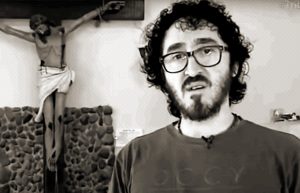
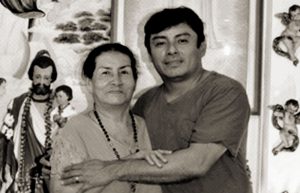
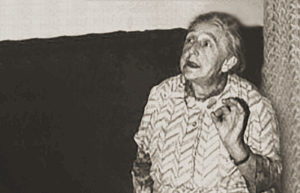 Elizabeth Kindelmann
Elizabeth Kindelmann Through what became The Spiritual Diary, Jesus and Mary taught Elizabeth, and they continue to instruct the faithful in the divine art of suffering for the salvation of souls. Tasks are assigned for each day of the week, which involve prayer, fasting, and night vigils, with beautiful promises attached to them, laced with special graces for priests and the souls in purgatory. In their messages, Jesus and Mary say that The Flame of Love of the Immaculate Heart of Mary is the greatest grace given to mankind since the Incarnation. And in the not-so-distant future, her flame will engulf the entire world.
Through what became The Spiritual Diary, Jesus and Mary taught Elizabeth, and they continue to instruct the faithful in the divine art of suffering for the salvation of souls. Tasks are assigned for each day of the week, which involve prayer, fasting, and night vigils, with beautiful promises attached to them, laced with special graces for priests and the souls in purgatory. In their messages, Jesus and Mary say that The Flame of Love of the Immaculate Heart of Mary is the greatest grace given to mankind since the Incarnation. And in the not-so-distant future, her flame will engulf the entire world.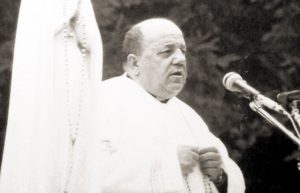 Father Stefano Gobbi
Father Stefano Gobbi Why Gisella Cardia?
Why Gisella Cardia? Thirdly, the messages have frequently been accompanied by visible phenomena, photographic evidence found in In Cammino con Maria, which cannot be the fruit of subjective imagination, notably the presence of the stigmata on Giselle’s body and and the appearance of crosses or religious texts in blood on Gisella’s arms. See the pictures taken from her apparition website
Thirdly, the messages have frequently been accompanied by visible phenomena, photographic evidence found in In Cammino con Maria, which cannot be the fruit of subjective imagination, notably the presence of the stigmata on Giselle’s body and and the appearance of crosses or religious texts in blood on Gisella’s arms. See the pictures taken from her apparition website 
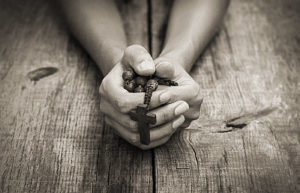 Jennifer
Jennifer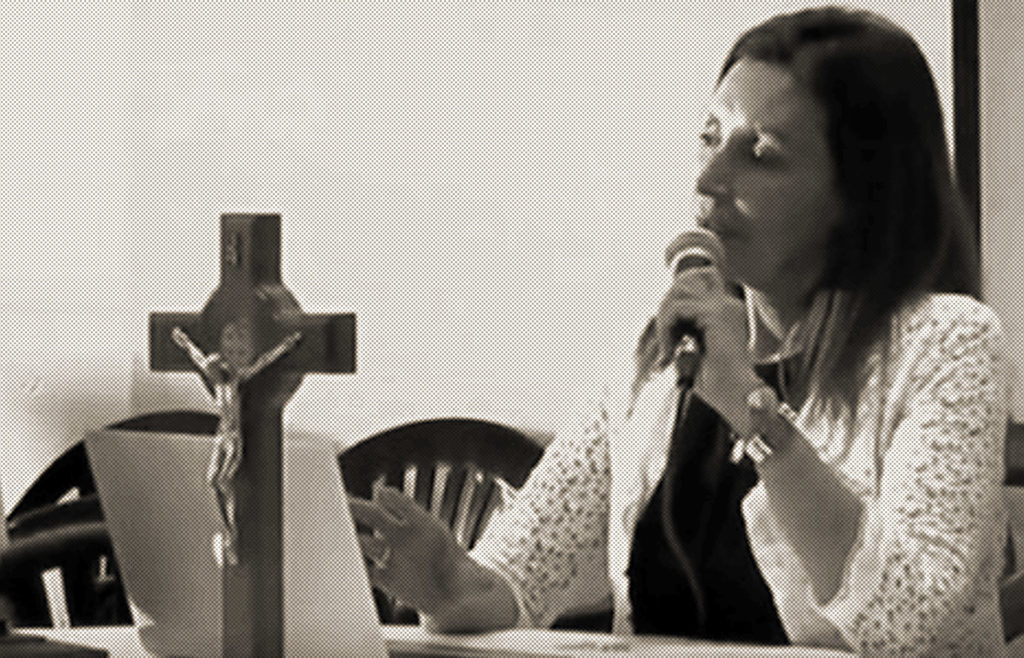
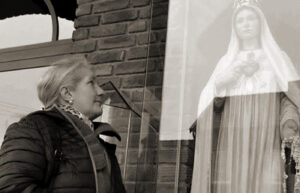 Why Manuela Strack?
Why Manuela Strack?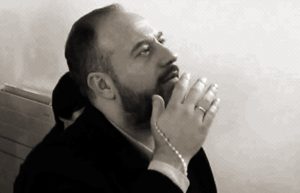
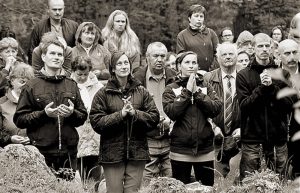
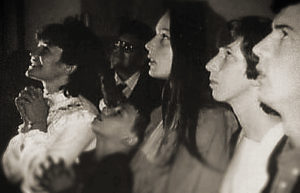 Why the Visionaries of Our Lady of Medjugorje?
Why the Visionaries of Our Lady of Medjugorje?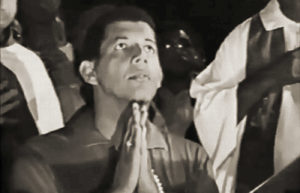 Why Pedro Regis?
Why Pedro Regis?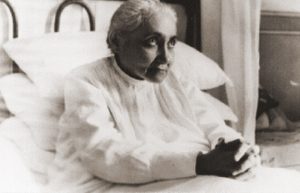 Why the Servant of God Luisa Piccarreta?
Why the Servant of God Luisa Piccarreta? of the saints. It wasn’t until she became a “Daughter of Mary” that the nightmares finally ceased at the age of eleven. In the following year, Jesus began to speak interiorly to her especially after receiving Holy Communion. When she was thirteen, He appeared to her in a vision that she witnessed from the balcony of her home. There, in the street below, she saw a crowd and armed soldiers leading three prisoners; she recognized Jesus as one of them. When He arrived beneath her balcony, He raised his head and cried out: “Soul, help Me!” Deeply moved, Luisa offered herself from that day on as a victim soul in expiation for the sins of mankind.
of the saints. It wasn’t until she became a “Daughter of Mary” that the nightmares finally ceased at the age of eleven. In the following year, Jesus began to speak interiorly to her especially after receiving Holy Communion. When she was thirteen, He appeared to her in a vision that she witnessed from the balcony of her home. There, in the street below, she saw a crowd and armed soldiers leading three prisoners; she recognized Jesus as one of them. When He arrived beneath her balcony, He raised his head and cried out: “Soul, help Me!” Deeply moved, Luisa offered herself from that day on as a victim soul in expiation for the sins of mankind. immobile, rigid-like state that appeared almost as if she were dead. It was only when a priest made the sign of the Cross over her body that Luisa regained her faculties. This remarkable mystical state persisted until her death in 1947—followed by a funeral that was no little affair. During that period in her life, she suffered no physical illness (until she succumbed to pneumonia at the end) and she never experienced bedsores, despite being confined to her little bed for sixty-four years.
immobile, rigid-like state that appeared almost as if she were dead. It was only when a priest made the sign of the Cross over her body that Luisa regained her faculties. This remarkable mystical state persisted until her death in 1947—followed by a funeral that was no little affair. During that period in her life, she suffered no physical illness (until she succumbed to pneumonia at the end) and she never experienced bedsores, despite being confined to her little bed for sixty-four years.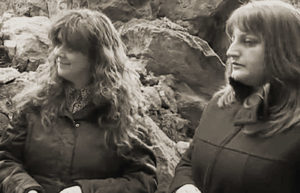 Why Simona and Angela?
Why Simona and Angela?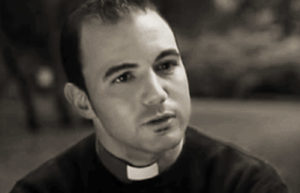
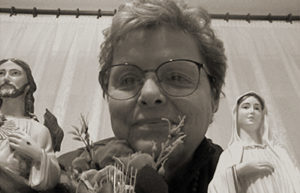 Valeria Copponi
Valeria Copponi